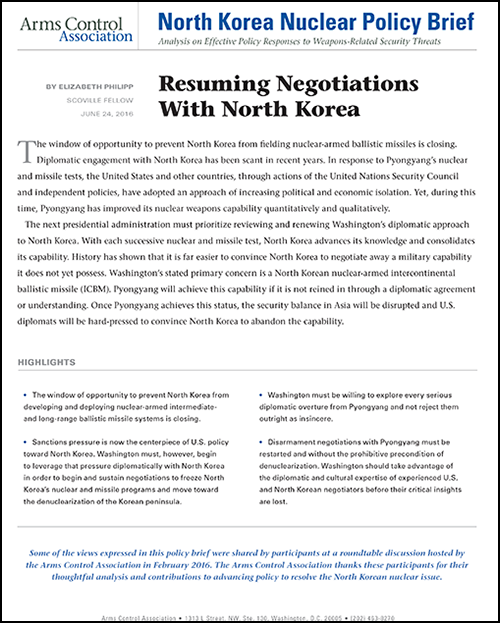By Elizabeth Philipp
2016 Scoville Fellow
June 2016
 |
| Download PDF |
The window of opportunity to prevent North Korea from fielding nuclear-armed ballistic missiles is closing. Diplomatic engagement with North Korea has been scant in recent years. In response to Pyongyang’s nuclear and missile tests, the United States and other countries, through actions of the United Nations Security Council and independent policies, have adopted an approach of increasing political and economic isolation. Yet, during this time, Pyongyang has improved its nuclear weapons capability quantitatively and qualitatively.
The next presidential administration must prioritize reviewing and renewing Washington’s diplomatic approach to North Korea. With each successive nuclear and missile test, North Korea advances its knowledge and consolidates its capability. History has shown that it is far easier to convince North Korea to negotiate away a military capability it does not yet possess. Washington’s stated primary concern is a North Korean nuclear-armed intercontinental ballistic missile (ICBM). Pyongyang will achieve this capability if it is not reined in through a diplomatic agreement or understanding. Once Pyongyang achieves this status, the security balance in Asia will be disrupted and U.S. diplomats will be hard-pressed to convince North Korea to abandon the capability.
